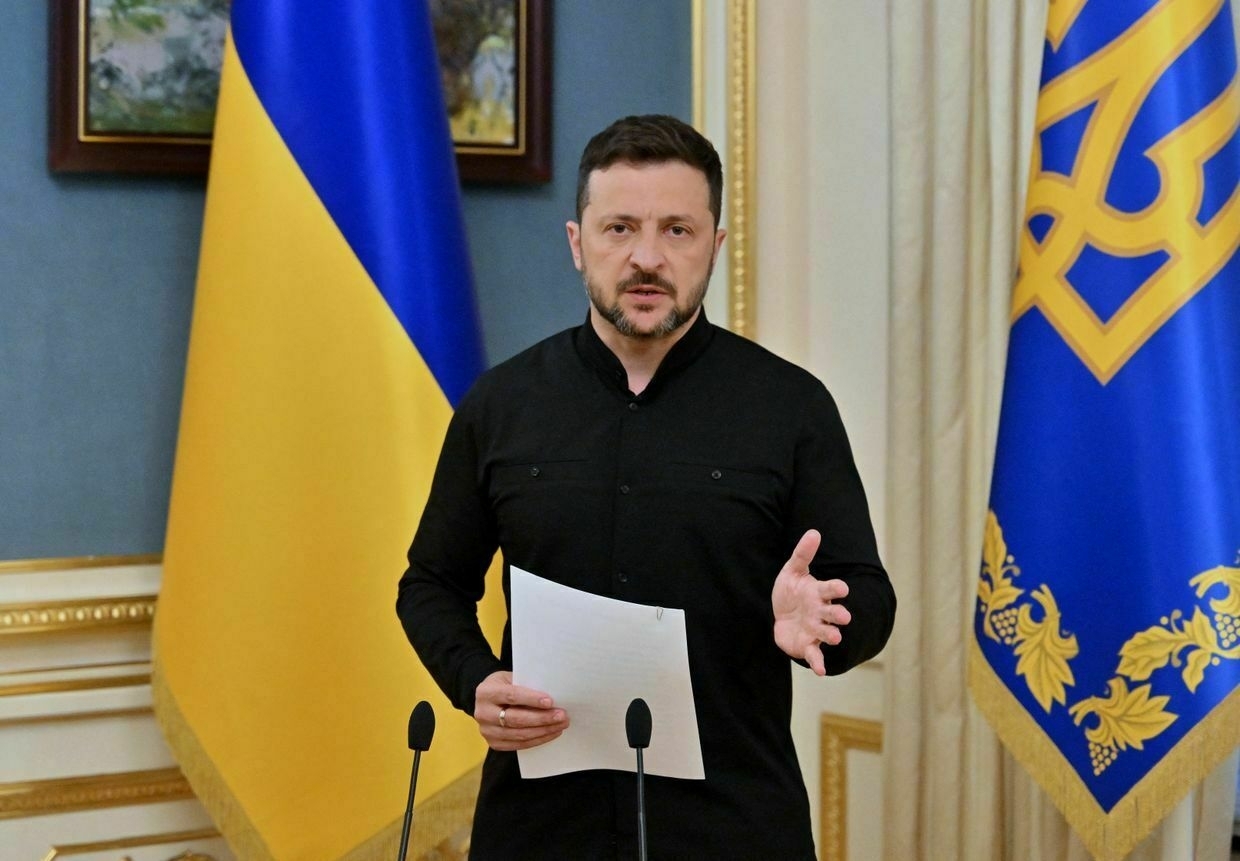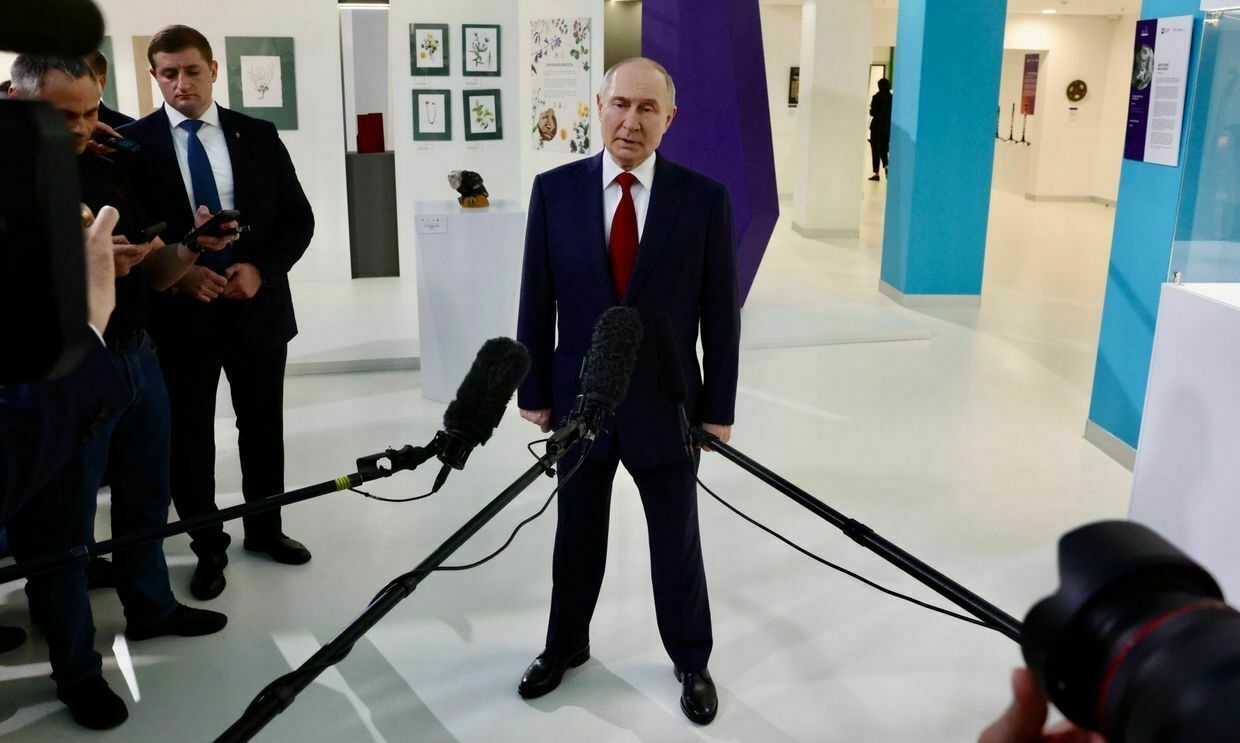
Editor’s note: This is a developing story and is being updated with additional details.
President Volodymyr Zelensky on May 19 rejected Vladimir Putin’s demand to withdraw Ukrainian troops from four partially occupied regions, after the Russian president held a call with U.S. President Donald Trump and once again failed to agree to a full ceasefire.
“It’s our land, we won’t withdraw our troops from our territory… it means that they don’t want peace… if they demand what they know we won’t agree to,” Zelensky said at a press briefing attended by the Kyiv Independent.
The comments come after Putin held a phone call with Trump, during which he continued to refuse to agree to a full ceasefire, stating he is prepared to negotiate a “memorandum regarding a potential future peace treaty."
Russia’s maximalist position in the negotiations remains unchanged and requires “eliminating the root causes” of the war, Putin added.
After the conversation, Trump said on Truth Social that Russia and Ukraine will “immediately start” negotiations toward a ceasefire and an end to the war.
Trump took office 118 days ago promising to end the war in Ukraine within 100 days.
“The conditions for that will be negotiated between the two parties, as it can only be, because they know details of a negotiation that nobody else would be aware of,” Trump added.
Putin’s foreign policy aide, Yuri Ushakov, told Russian journalists that the presidents spoke for two hours and five minutes, and a ceasefire deadline was not mentioned.
A source in the President’s Office told the Kyiv Independent that Trump and Zelensky spoke twice on May 19 — once before the scheduled call with Putin and again after it.
According to Zelensky, during his phone call with the U.S. president, he advocated for a ceasefire, the opportunity to express views on the memorandum, and for decisions regarding Ukraine not to be made without Ukraine’s involvement.
Zelensky also said there would be a “strong EU sanctions package,” though he didn’t say when it would be imposed. He added Ukraine was expecting “when they see fit, the U.S. to impose sanctions on Russian banks and energy sector."
“This would be an important, strong mechanism,” he added.
The calls follow days of largely inconclusive negotiations in Istanbul, where Russia sent a delegation of low-level officials and reiterated sweeping territorial demands, including that Ukraine accept the loss of Crimea and four eastern regions.
The second conversation between Zelensky and Trump lasted for over an hour and included Italian Prime Minister Giorgia Meloni, French President Emmanuel Macron, Finnish President Alexander Stubb, German Chancellor Friedrich Merz, European Commission President Ursula von der Leyen, and European Council President Antonio Costa.
Zelensky also said that Kyiv is exploring the possibility of a meeting with delegations from Ukraine, Russia, the US, and the EU in Turkey, the Vatican, or Switzerland.
Trump on also claimed on May 19 that Russia is interested in engaging in large-scale trade with the United States once the war ends.
“There is a tremendous opportunity for Russia to create massive amounts of jobs and wealth. Its potential is unlimited. Likewise, Ukraine can be a great beneficiary on trade, in the process of rebuilding its country,” he said.
Kremlin spokesperson Dmitry Peskov described the phone call between the two presidents as “productive” and highlighted Trump’s “neutral” stance on the war.
Speaking to reporters, Peskov said, “Trump’s position is neutral and he does deal with settlement issues, while the position of European politicians is openly pro-Ukrainian."
The U.S. president’s approach to negotiations frustrates European allies, many of whom sought his support for a joint U.S.–EU ultimatum demanding an unconditional ceasefire starting May 12 and tougher sanctions on Moscow.
Despite Russia’s refusal, no new U.S. sanctions have been imposed so far.
 The Kyiv IndependentTim Zadorozhnyy
The Kyiv IndependentTim Zadorozhnyy
